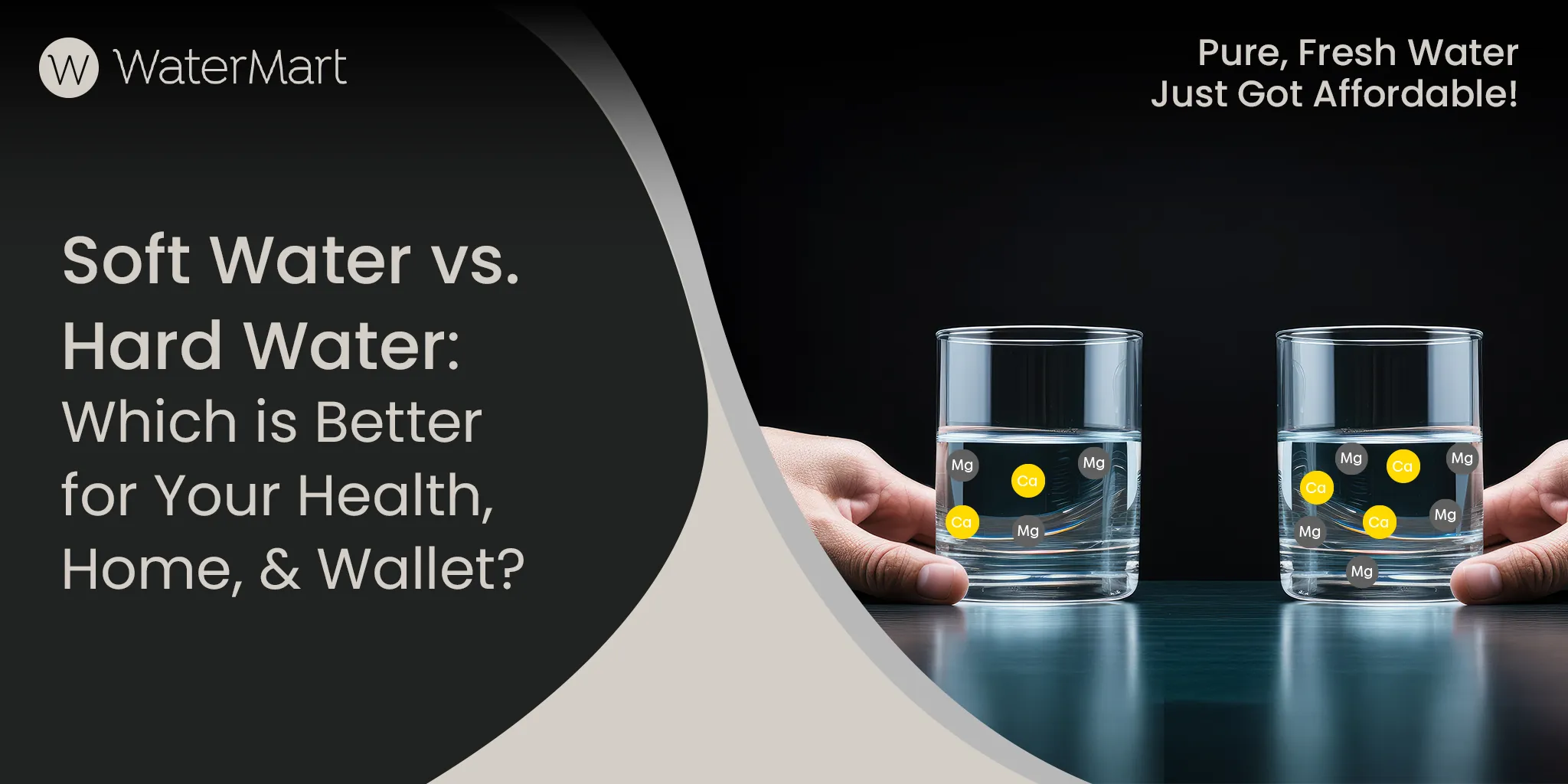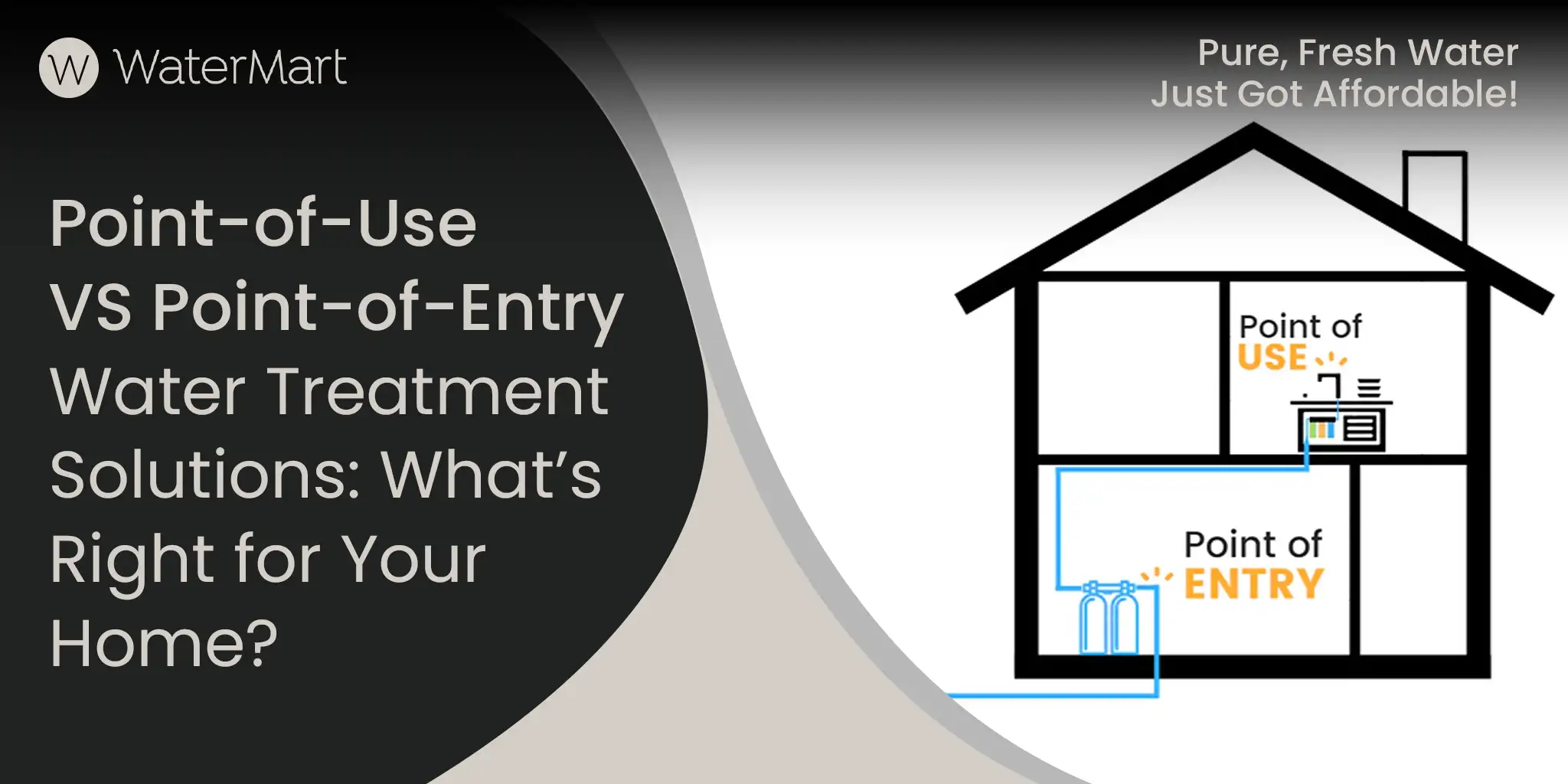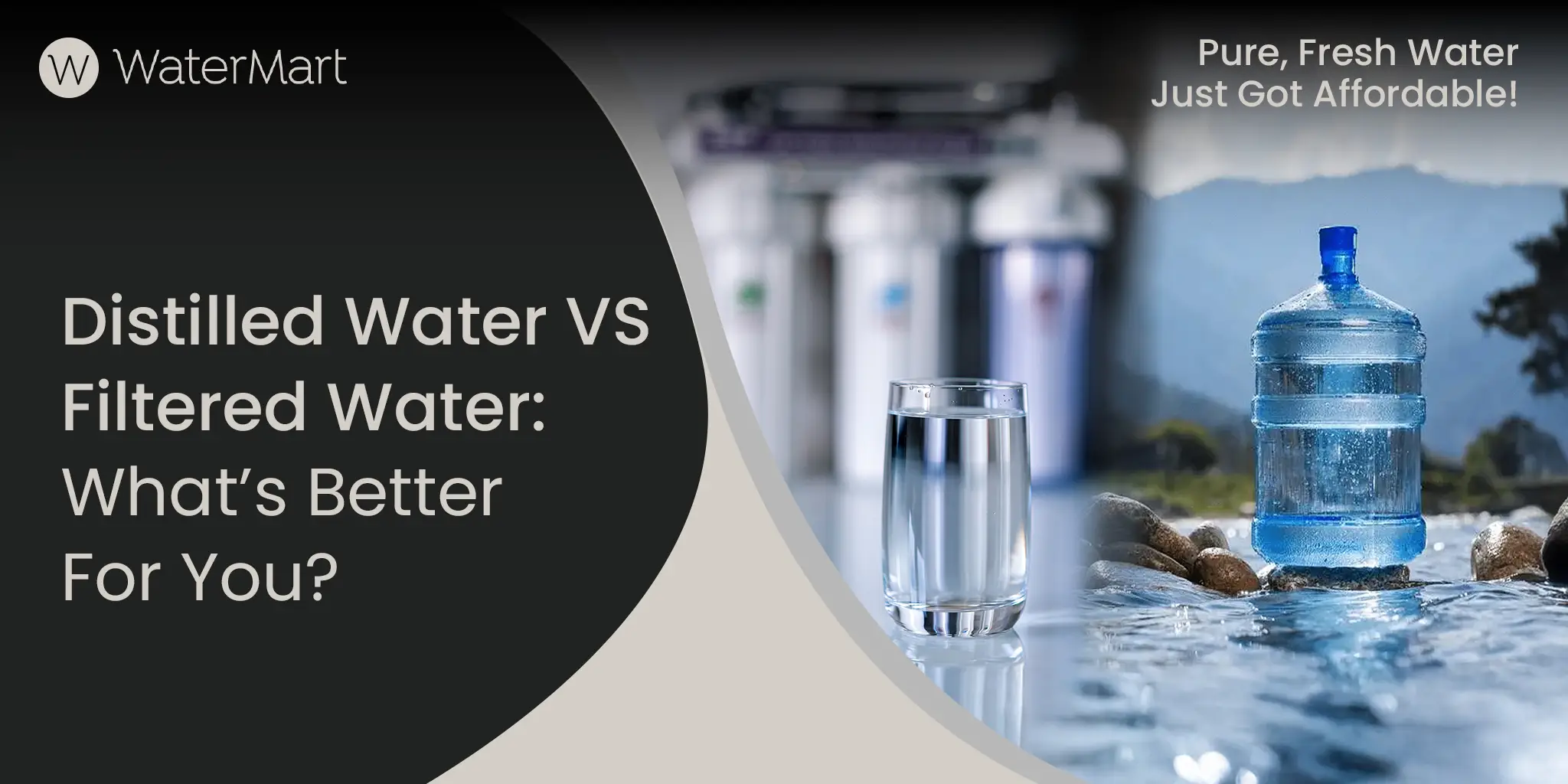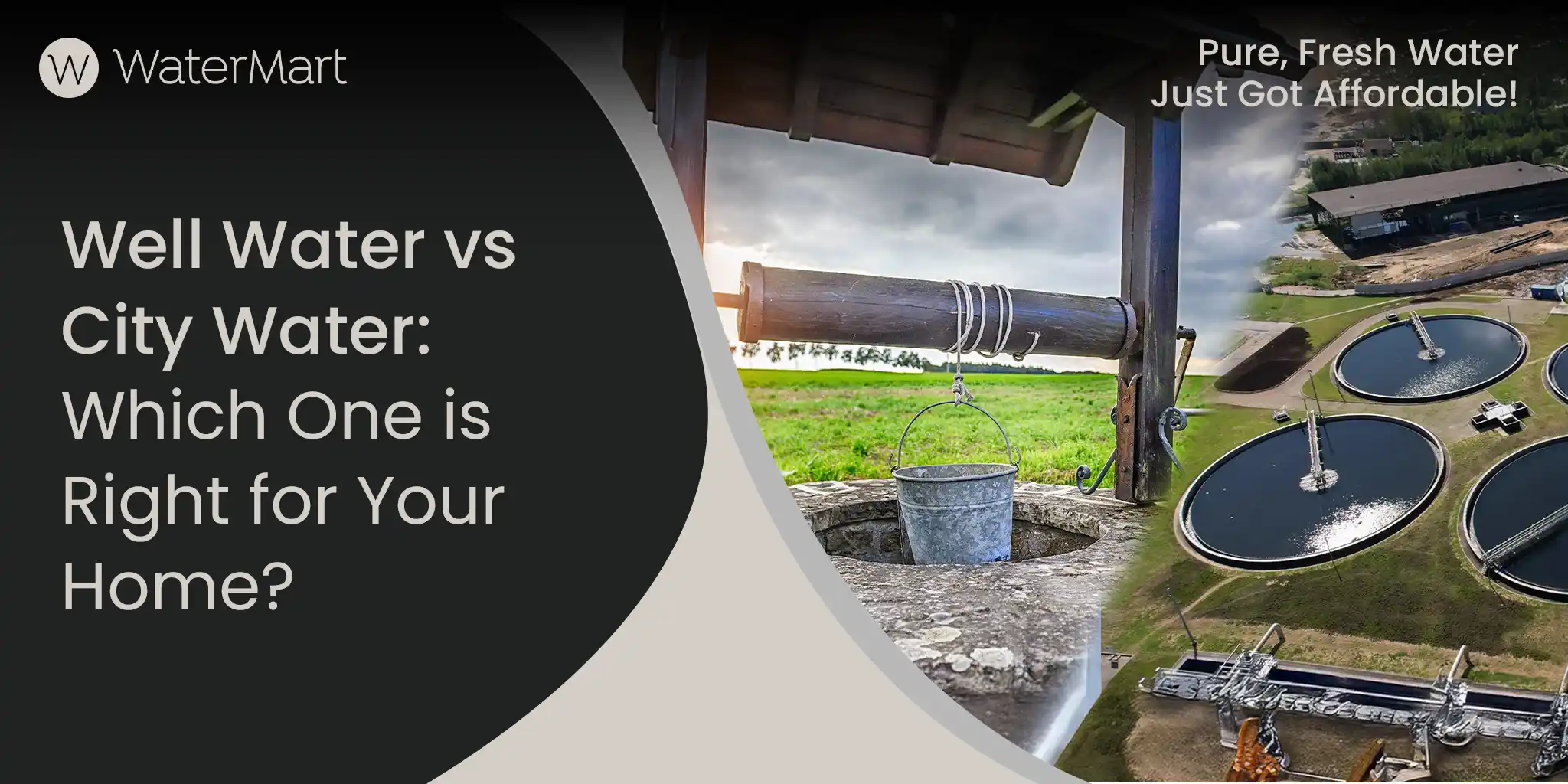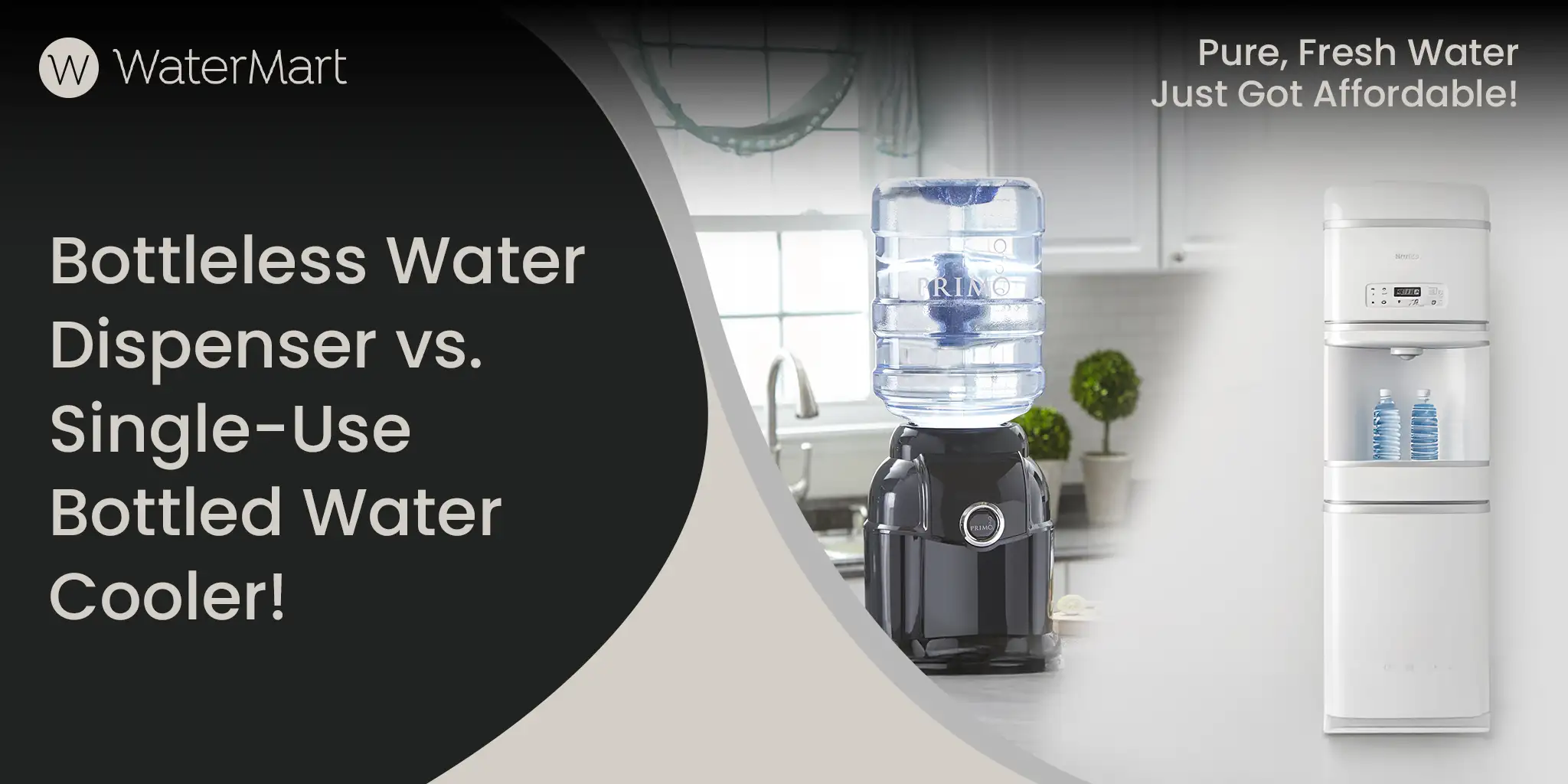Your cart is currently empty!
Soft Water vs. Hard Water: Which is Better for Your Health, Home, and Wallet?
According to Health Canada’s yearly report, provinces such as Ontario (320 mg/L) and Saskatchewan (532 mg/L) have some of the hardest water levels in the country. Since anything above 200 mg/L is considered unsuitable for home use, these levels raise serious concerns for daily cleaning, bathing, and appliance use. Not turning it into soft water can lead to problems like scale buildup, dry skin, and inefficient systems.
In this article, we’ll compare soft water vs. hard water, tell you how to spot hard water signs, explain how it affects your home, health, and appliances, and help you decide what kind of water is right for you.
What Is the Difference Between Hard Water and Soft Water?
Water naturally has a variety of minerals, such as calcium and magnesium. Whether a water supply is considered “hard” or “soft” depends on how much of these minerals are in your water. Look at the following table that shows the amount of different minerals present in soft and hard water.
| Hard Water | Soft Water | |
| Mineral Content | High in calcium, magnesium, and other ions | Low mineral levels through the addition of sodium or potassium |
| Appliance Wear | Causes scale, reduces efficiency | Prevents buildup, protects heaters |
| Effect On Skin | Often dries or irritates the skin | Leaves skin feeling slippery, smooth, and soft |
| Laundry Effect | Less lather, leaves residue | Rich suds, easy rinsing |
How To Check The Water Hardness?
Tap water varies across Canada. To find out what’s in yours, try these methods or look for the signs covered below:
- DIY Test: Fill a clear bottle halfway with tap water, add a few drops of soap, and shake. If you get rich lather, your water is likely soft. If it looks dull or forms little to no suds, you likely have hard water.
- Purchase a Kit: Buy a test kit from any hardware or home store. These are easy to use and come with strips that detect hard minerals.
- Professional Testing: A quick, no-cost way is to use WaterMart’s free water test to measure your water hardness in ppm (parts per million) or gpg (grains per gallon). This test gives you clear results and helps detect scale buildup and soap efficiency issues.
Signs You Have Hard Water
Hard water signs often show up in ways you can see and feel. Here are the water symptoms you can check for:
- Scale buildup on faucets and showerheads
- White spots on glassware and dishes
- Soap scum on tiles, sink, and tubs
- Stiff, dingy clothes and linens after washing
- Clogged appliances or reduced water pressure
These hard water symptoms can build over time and damage appliances and pipes.
Signs You Have Soft Water
Noticing the benefits of soft water is just as simple. If your home has been softened, here are the typical signs:
- Rich lather forms quickly with less soap or shampoo
- Laundry feels soft, smells clean, and stays brighter
- No leftover residue on dishes or surfaces
- Appliances run more efficiently and heat faster
- Skin feels smooth and less dry after showers
These improvements reflect better filtration, less scale, and more energy-efficient plumbing.
Can We Use Hard Water In Daily Life?
You can drink hard water, and it’s technically safe. But for daily use, its mineral content causes more harm than good. Continuous use of hard water can damage the plumbing system, household appliances, human skin, and hair. That’s where long-term practicality falls apart. So, why is hard water bad? Here are the reasons.
Skin and Hair Problems Caused by Hard Water
Hard water symptoms often start with the skin and hair. It can dry out your skin and make your hair brittle. Minerals leave behind a film that clogs skin pores and irritates hair follicles. Major signs are conditions like eczema and psoriasis worsening or shampoos becoming less effective. Your scalp feels itchy, and strands lose shine and feel straw-like.
Reduced Effectiveness of Soap and Detergents
Hard water makes it difficult to create lather and is the cause of ineffective cleaning. People start using and wasting more soap and detergents to get results, when the problem is the water. After cleaning, you’ll still see sticky residue on every surface. Suds don’t form properly and the interaction with minerals leads to soap scum that stays behind and weakens your cleaning efforts.
Laundry Issues and Fabric Damage
Hard water makes laundry “ineffective”. Clothes washed in such type come out faded, stiff, and dingy. Minerals in water damage fibers of all types, from towels to cotton, over time. Aside from quality loss, the laundry doesn’t feel clean, as repeated washes don’t help when minerals cling to every thread. A water softening system could save both your wardrobe and your wallet.
Limescale Buildup in Appliances and Fixtures
Limescale is a clear sign of hard water, and it’s not just ugly, it’s costly. It comes from calcium and magnesium minerals and forms a buildup on kettles, pipes, and heaters. The mineralized crust looks bad and blocks function. It reduces heat efficiency and leads to appliance damage. Filtration systems often can’t keep up, and boiler lifespan drops with continued exposure to hard water.
Higher Energy Consumption and Utility Bills
Aside from corrosion, scale buildup also makes heating elements work harder. Since heat can’t pass through the buildup easily, the system works overtime to compensate. This results in costly bills, whether you’re using gas or electricity. Over time, the system becomes more inefficient and more expensive to run.
Rising Household Maintenance and Repair Costs
Hard water doesn’t just stress your systems, it hits your budget. Constant maintenance, frequent repair, and early replacement of pipes, plumbing, and appliances become the norm. Instead of adding extra costs to fix preventable problems, it’s better to spend money on a good water softening system.
How To Make Hard Water Soft?
To soften hard water, start with practical methods that work. Installing a water softener is the most effective. It uses the ion exchange (resin bed) method to remove minerals and replace them with sodium or potassium ions. You can also use reverse osmosis or try a magnetic system. Reverse osmosis uses a membrane to filter water that traps unwanted particles, which helps in better understanding its benefits in comparison of RO & Mineral Water.
. And magnetic systems alter how minerals behave, helping reduce scale. See our detailed guide on How to Soften Hard Water for clear steps and practical options.
WaterMart’s Water Softener System is a low-maintenance, long-term solution. It reduces water hardness (usually 0-60 mg/L or 0-3.5 gpg) to help prevent scale buildup and protect plumbing. The system improves water feel and flow, ideal for homes that need soft water every day.
How Hard Is Tap Water in Canadian Cities?
Municipal tap water across Canada varies by location. Most cities report hardness levels between 60–120 mg/L, falling in the moderately hard range. Cities like Calgary and Regina can go well above that, due to their source water passing through mineral-rich soil and rock.
Municipal systems add chlorine and fluoride to kill pathogens and support dental health. But these chemicals can react with minerals, changing the taste and affecting faucet fixtures, heater systems, and household plumbing.
Water treatment systems don’t eliminate all toxins or radicals, especially if you’re concerned about moisture, balance, or elements in your diet. For peace of mind and better power efficiency, get a professional test to find the right solution for your home.
Is Well Water Hard or Soft?
Well water in Canada is very hard. As water seeps through soil and rock, it absorbs Ca and Mg from limestone, granite, and other minerals underground. Without treatment, microbes and pathogens can make their way into private wells. This can affect not just water taste, but your entire food routine, especially if you’re washing vegetables, fruits, fish, dairy, nuts, or legumes regularly.
Rural homes using well water also face higher electricity or gas bills and a larger carbon footprint. Adding a modern water softener helps reduce these costs over time. It’s a long-term fix that protects your home and supports better water quality. A proper filtration or softening system is good for both the proteins in your diet and the health of your home.
Benefits Of Using Soft Water!
People believe soft water takes away “natural minerals” (calcium and magnesium) that our body requires. But it’s easy to get both of these from dairy products, animal proteins, and regular fruits and vegetables. Soft water can improve your quality of life. Over time, it helps reduce energy use and boosts appliance performance. Here’s how soft water helps:
- Gentle on skin and hair; reduces dryness and irritation
- Better shampoo and soap lathering, and cleaner results with less product usage
- Prevent fading and maintain the quality of fabrics longer with less detergent
- Spot-free dishes and clear, shiny glassware
- Protects appliances like water heaters and dishwashers, reducing mineral buildup
- Helps extend the life of pipes and water-using systems
- Reduces energy use by improving heating efficiency
- Enhances cleaning results while lowering product waste
Get A Free Water Test From WaterMart!
WaterMart offers a free, in-home water test so you can finally understand what’s coming out of your tap. This isn’t a visual guess, it’s a real, personalized assessment based on your home’s unique conditions. When you book your water assessment, a professional tests for scale, ppm, and other hidden issues, you receive clear results and helpful insights about what’s affecting your water and your daily life.
Book confidently, it’s 100% free and commitment-free, and get started with WaterMart water treatment solution today.
Conclusion
Knowing the comparison of soft water vs. hard water can help you check the quality of your water. Hard water can cause problems for your home, health, and finances. It irritates skin, damages appliances, and raises utility bills. Soft water prevents these issues. It’s gentler on your skin, improves appliance efficiency, and makes cleaning easier. Start with a free test and take the first step toward cleaner water and a more low-maintenance home.
